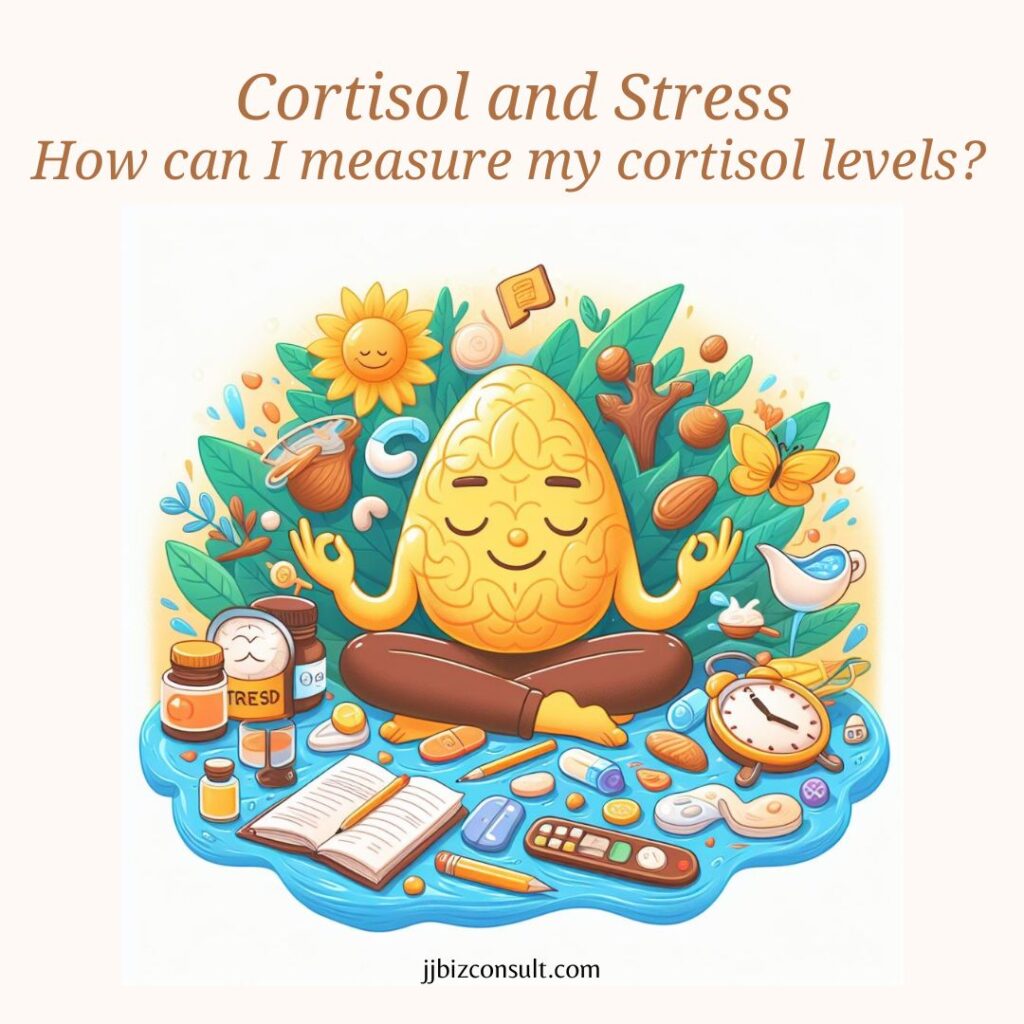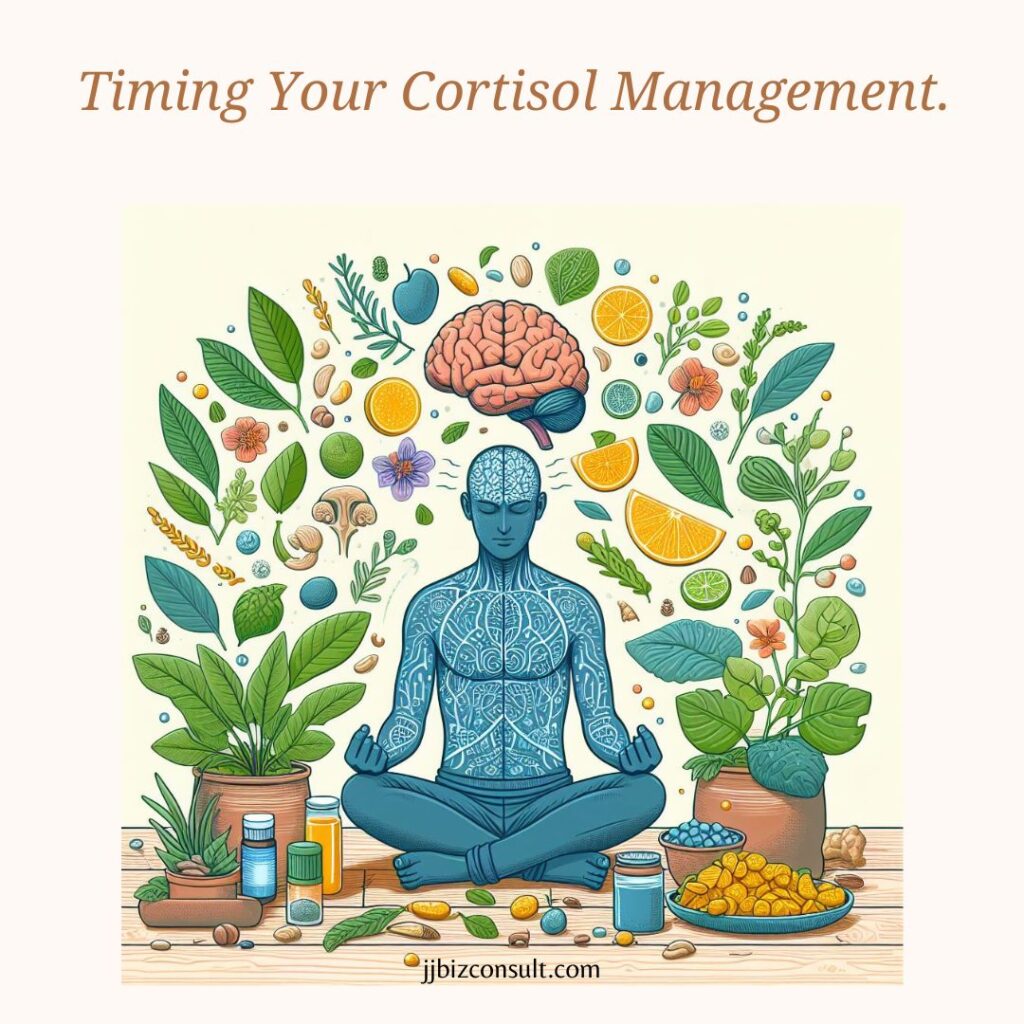Cortisol and Stress: 11 Natural Ways to Lower Your Levels and Live a Healthier Life

Cortisol and Stress: 11 Natural Ways to Lower Your Levels and Live a Healthier Life.
Introduction: What is Cortisol. Cortisol and Stress ?
Cortisol, often dubbed the “stress hormone,” plays a pivotal role in our body’s response to stress. While it’s essential for survival, chronically elevated cortisol levels can lead to health issues. In this blog post, we’ll explore how to manage cortisol effectively, maintain balance, and promote overall well-being.
Cortisol is a glucocorticoid hormone produced and released by your adrenal glands, which are small, triangle-shaped glands located on top of each of your two kidneys. Let’s delve into its functions:
- Regulating Stress Response: Cortisol is widely known as the “stress hormone” because it plays a crucial role in your body’s response to stress. Whether it’s acute stress (like narrowly avoiding a car accident), chronic stress (from ongoing frustrating situations), or traumatic stress (such as extreme weather events or war), your body releases cortisol to cope with these different types of stress.
- Metabolism Control: Cortisol helps regulate your body’s use of fats, proteins, and carbohydrates. It influences how your muscles, fat, liver, and bones metabolize these nutrients.
- Inflammation Suppression: Glucocorticoids, including cortisol, suppress inflammation in all your bodily tissues. This anti-inflammatory effect is essential for maintaining overall health.
- Blood Pressure Regulation: Cortisol plays a role in regulating blood pressure. It affects blood vessel constriction and fluid balance1.
- Blood Sugar Regulation: Cortisol helps regulate blood sugar levels by influencing glucose production and utilization. It ensures a steady supply of energy for your body.
- Sleep-Wake Cycle Control: Cortisol also has an impact on your sleep-wake cycle. It helps maintain a healthy sleep pattern.
Remember that your body continuously monitors cortisol levels to maintain steady levels (homeostasis). Abnormal cortisol levels—either too high or too low—can be detrimental to your health. So, while cortisol is indeed the “stress hormone,” it serves many other essential functions beyond stress management.
Cortisol and Stress: How can I measure my cortisol levels?

Cortisol, often referred to as the “stress hormone,” plays a crucial role in various bodily functions. If you’re curious about your cortisol levels, here’s how you can measure them:
- Cortisol Test Types:
- You can measure cortisol levels through blood, saliva, or urine samples.
- Each type of test provides different insights into cortisol levels.
- Blood Test:
- A blood cortisol test is commonly done.
- It’s usually performed twice in the same day: once in the morning and again later.
- A normal cortisol value in a blood sample taken at 8 a.m. typically ranges from 5 to 25 mcg/dL.
- However, results can vary based on the time of the test and other factors.
- Salivary Cortisol Test:
- This test measures cortisol levels in your saliva.
- It’s useful for assessing cortisol patterns throughout the day.
- Salivary cortisol levels are usually higher in the morning and lower at night.
- Urinary Cortisol Test:
- The urinary cortisol test assesses cortisol levels in your urine.
- It provides information about cortisol excretion over a 24-hour period.
- This test helps evaluate overall cortisol production.
- Why Measure Cortisol?:
- Cortisol levels can indicate adrenal disorders such as:
- Addison’s disease (too little cortisol).
- Cushing’s syndrome (excess cortisol).
- Tumors affecting cortisol production.
- Cortisol levels can indicate adrenal disorders such as:
- Symptoms of High Cortisol Levels (Cushing’s Syndrome):
- Changes in sex drive.
- Diabetes.
- Excessive hair growth or balding.
- High blood pressure (hypertension).
- Purple stretch marks over the abdomen.
- Red, round face.
- Poorly healing wounds.
- Easy bruising.
- Weak muscles and thinner limbs.
- Stunted growth in children.
- Weight gain.
Remember, if you suspect any cortisol-related issues, consult a healthcare provider. They’ll guide you on the appropriate test and interpretation of results.
Cortisol and Stress: 11 Natural Ways to Lower Your Levels

1. Prioritize Quality Sleep
- Chronic sleep disturbances, such as insomnia or obstructive sleep apnea, correlate with higher cortisol levels.
- Optimize your sleep environment, maintain a consistent schedule, and consider relaxation techniques for better sleep quality.
2. Regular Exercise
- Exercise can either increase or decrease cortisol levels, depending on intensity.
- Aim for a mix of aerobic workouts, strength training, and flexibility exercises.
3. Mindfulness and Stress Reduction
- Recognize stressful thinking patterns and practice mindfulness.
- Deep breathing exercises and meditation help manage cortisol.
4. Embrace Fun and Laughter
- Laughter reduces cortisol levels.
- Engage in activities that bring joy and lightness.
5. Cultivate Healthy Relationships
- Strong social connections buffer stress.
- Prioritize meaningful interactions with friends and family.
6. The Pet Factor
- Caring for a pet can lower cortisol levels.
- Consider adopting a furry friend!
7. Be Your Best Self
- Self-improvement positively impacts cortisol.
- Set achievable goals and celebrate progress.
8. Nutrient-Dense Diet
- Include cortisol-friendly foods:
- Wild salmon
- Dark chocolate
- Turmeric
- Extra virgin olive oil
- Bananas
- Mushrooms
- Garlic
- Flaxseed
- Asparagus
- Ginger
- Onions
- Green tea
9. Limit Caffeine Intake
- High caffeine consumption elevates cortisol.
- Be mindful of coffee and energy drinks.
10. Hobbies and Leisure Activities
- Engage in activities you love.
- Hobbies provide a healthy stress outlet.
11. Cortisol and Stress: Time Your Cortisol Management
- Cortisol levels follow a circadian rhythm.
- Optimize stress management techniques based on the time of day.
Timing Your Cortisol Management. Cortisol levels follow a circadian rhythm.

Understanding the circadian rhythm of cortisol levels can help you optimize stress management throughout the day. Let’s delve deeper into this concept:
- Morning Cortisol Surge:
- Peak Time: Cortisol levels naturally surge in the early morning, typically between 6 a.m. and 9 a.m. This surge is known as the “cortisol awakening response” (CAR).
- Why It Matters: This surge prepares your body for the day ahead, providing energy and alertness.
- Stress Management Tip: Leverage this natural boost by engaging in positive activities, such as exercise, meditation, or planning your day.
- Midday Dip:
- Midday Slump: Cortisol levels gradually decline after the morning peak.
- Why It Matters: This dip can lead to feelings of fatigue or decreased focus.
- Stress Management Tip: Take a short break, stretch, or practice deep breathing to recharge during this time.
- Afternoon Rebound:
- Recovery Phase: Cortisol levels start to rise again in the afternoon.
- Why It Matters: This rebound helps maintain energy levels.
- Stress Management Tip: Engage in light physical activity or enjoy a healthy snack to sustain your energy.
- Evening Decline:
- Tapering Off: Cortisol gradually decreases throughout the evening.
- Why It Matters: Lower cortisol levels promote relaxation and prepare your body for sleep.
- Stress Management Tip: Wind down with calming activities—read, meditate, or take a warm bath.
- Nighttime Low:
- Lowest Levels: Cortisol reaches its lowest point during the night.
- Why It Matters: Deep sleep and tissue repair occur during this phase.
- Stress Management Tip: Prioritize quality sleep by maintaining a consistent sleep schedule and creating a restful environment.
Remember that individual variations exist, and external factors (like shift work or irregular sleep patterns) can disrupt this natural rhythm. By aligning stress management techniques with your body’s cortisol fluctuations, you can enhance overall well-being and resilience. 🌟
Conclusion: Cortisol and Stress:
Balancing cortisol is essential for overall health. Implement these natural strategies to keep cortisol in check, reduce stress, and live a vibrant life. Remember, small changes can yield significant results!
References:
Remember, managing cortisol is a journey. Start today for a healthier tomorrow!
Economic impact of an ageing world: Challenges and Opportunities





